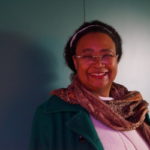|
«ASTROMOVES: Astrophysics, Jarita Holbrook (Science, Technology and Innovation Studies, University of Edinburgh, UK). Holbrook is a Marie Skłodowska Curie Fellow at the University of Edinburgh. They are an expert in African Indigenous Astronomy as well as an award winning filmmaker. ASTROMOVES builds on research on astrophysicists of the Astronomy & Society group at the University of the Western Cape and the EAGER collaboration at UCLA. SATURDAY – December 12
The US astronomy/astrophysics community comes together to create a decadal report that summarizes grant funding priorities, observatory & instrumental priorities as well as community accomplishments and community goals such as increasing the number of women and the number of people from underrepresented groups. In the 2010 US National Academies Decadal Survey (National Research Council, 2010) of Astronomy, it was suggested that having to move so frequently which is a career necessity may be unattractive to people wanting to start a family, especially impacting women. Whether in the USA or Europe as postdocs, astrophysicists will relocate every two to three years, until they secure a permanent position or leave research altogether. Astrophysicists do perceive working abroad as important and positive for their careers (Parenti, 2002) however, it was found that the men at equal rank had not had to spend as much time abroad to further their careers (J. Fohlmeister & Helling, 2012). By implication, women need to work abroad longer or have more positions abroad to achieve the same rank as men. Astrophysicists living in the United Kingdom prefer to work in their country of origin, but many did not do so because of worse working conditions or difficultly finding a job for their spouse (Janine Fohlmeister & Helling, 2014). In sum, moving is necessary for a career in astrophysics, and even more necessary for women, but astrophysicists prefer not to move as frequently as needed to maintain a research career. To gather more data on these issues and to broaden the discourse beyond male & female to include the gender diverse as well as to include other forms of diversity, I designed the ASTROMOVES project which is funded through a Marie Curie Individual Fellowship. Though slowed down by COVID-19, several interviews have been conducted and the preliminary results will be presented. Of interests are two unexplored areas that arose from the interviews: 1. The role, resources and impact of locally funded unemployment. And 2. The consideration of local cost of living as part of career decision making. |

 Invited Talk 15
Invited Talk 15